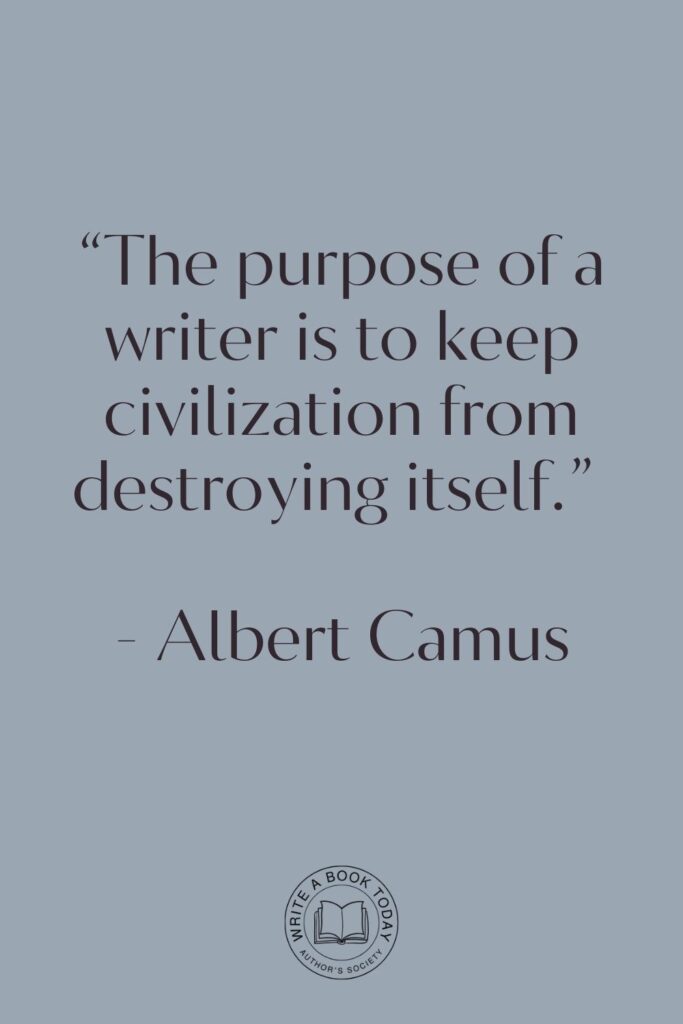Imagine waking up every morning with a sense of purpose, knowing exactly when and where you’ll write, and feeling excited about it. For many, establishing a writing routine can feel as elusive as capturing a cloud.
But what if it didn’t have to be? What if creating a routine was less about rigid schedules and more about finding a rhythm that fits seamlessly into your life?
This blog post delves into the art of building a sustainable writing routine, offering insights and practical tips to help you nurture your writing habits and stay motivated. Together, we’ll explore the benefits of consistency in writing, the challenges many writers face, and how you can overcome them to achieve your creative goals.
Understanding the Importance of a Writing Routine
Establishing a writing routine is like planting a garden; it requires regular attention and care to flourish. At its core, a routine provides structure, allowing creativity to blossom within defined boundaries.
It’s the secret ingredient that transforms sporadic bursts of inspiration into a steady stream of productivity. By committing to a routine, writers can harness their creativity more effectively, leading to improved skills and a greater body of work over time.
The Benefits of a Consistent Writing Habit
Consistency is the backbone of any successful endeavor, and writing is no exception. A consistent writing habit not only enhances your skills but also builds confidence in your abilities.
Over time, you’ll notice an improvement in your writing quality and speed, making the process more enjoyable. Furthermore, regular writing sessions help reduce writer’s block by keeping your creative muscles flexed and ready for action.
Set small, achievable goals for your writing sessions. By starting with manageable targets, you build momentum and confidence, which gradually leads to more ambitious projects.
No marketing platform? No social following? No problem!
Publisher Rocket helps you market your debut novel like a pro.
It’s a gamechanger for debut authors – try it today!


Why Many Writers Struggle with Consistency
Despite understanding the benefits, many writers struggle to maintain a consistent routine. Life’s unpredictability, coupled with self-doubt and fear of failure, can derail even the most dedicated scribes.
It’s easy to fall into the trap of waiting for the “perfect” moment to write, only to find that moment never arrives. The key is to recognize these barriers and devise strategies to overcome them, transforming challenges into opportunities for growth.
Identify your biggest distractions and find ways to minimize them. Whether it’s turning off notifications or creating a distraction-free environment, small changes can significantly enhance your focus and productivity.
Crafting Your Ideal Writing Routine
Creating a writing routine that resonates with your lifestyle and personality is crucial for long-term success. Think of it as designing a bespoke suit, tailored to fit your unique needs and preferences.
By experimenting with different elements, you can craft a routine that not only supports your writing goals but also enriches your life.

Identifying Your Best Writing Time
Every writer has a unique internal clock that dictates when they are most productive. Some thrive in the quiet solitude of early mornings, while others find their muse under the stars.
Identifying your optimal writing time is crucial for maximizing productivity and enjoyment. Experiment with different times of day to discover when your mind is most alert and your creativity flows effortlessly.
Consider using a table to track your productivity at different times:
| Time of Day | Productivity Level |
|---|---|
| Morning | High |
| Afternoon | Moderate |
| Evening | Low |
Setting Realistic Goals and Expectations
Setting realistic goals is akin to laying down stepping stones on the path to success. It’s important to aim high, but equally vital to ensure your goals are attainable.
Start by defining what success looks like for you, whether it’s completing a chapter a week or writing a set number of words daily. Remember, it’s not about perfection; it’s about progress.
Here are some tips to guide your goal-setting:
- Break larger projects into smaller, manageable tasks.
- Celebrate small victories to stay motivated.
- Adjust your goals as needed to reflect your growth and changing circumstances.
Feeling lost with your debut novel?
Fiverr Pro connects you with expert editors, designers, and marketers – everything you need to get your book ready for success!

Creating a Dedicated Writing Space
Your writing space is a sacred haven where creativity takes flight. Whether it’s a cozy nook in your living room or a bustling café, the right environment can significantly impact your focus and inspiration.
Personalize your space with elements that inspire you, such as books, artwork, or a favorite mug. The goal is to create a sanctuary that invites creativity and encourages productivity.
Experiment with different locations to find your ideal writing space. Sometimes, a change of scenery can invigorate your creativity and provide a fresh perspective.
Incorporating Flexibility in Your Routine
While consistency is key, flexibility ensures your routine remains adaptable to life’s ebb and flow. Embrace the idea that some days will be more productive than others, and that’s okay.
Allowing room for spontaneity can prevent burnout and keep your routine enjoyable. Consider having a plan B for days when writing at your usual time isn’t possible, ensuring you maintain your habit without added stress.
Building Motivation and Staying Inspired
Motivation is the fuel that propels your writing journey forward. Without it, even the most well-crafted routine can falter. Cultivating a deep, personal connection to your writing can sustain you through periods of doubt and fatigue. By exploring various sources of inspiration, you can keep your creative fire burning brightly.
Finding Your Personal Writing Motivation
Understanding what drives you to write is essential for maintaining motivation. Is it the joy of storytelling, the desire to communicate ideas, or the thrill of creation? Reflect on your reasons and remind yourself of them regularly.
This intrinsic motivation will serve as a guiding star, keeping you focused and inspired even when the going gets tough.

Using Writing Prompts and Challenges
Writing prompts and challenges are like gym workouts for your creative muscles. They push you out of your comfort zone and encourage you to explore new ideas and styles.
Consider joining a writing group or participating in online challenges to keep your routine fresh and exciting. These activities can reignite your passion and open doors to unexpected creative avenues.
Set aside time each week to experiment with writing prompts. These exercises can stimulate your imagination and lead to surprising breakthroughs in your writing.
Connecting with Other Writers for Support
Writing can often feel like a solitary endeavor, but connecting with fellow writers can provide invaluable support and encouragement. Join writing communities, attend workshops, or engage with online forums to share experiences and gain insights.
These connections can offer fresh perspectives, constructive feedback, and a sense of camaraderie that fuels your motivation.
Tips for Overcoming Writer’s Block
Writer’s block is a common foe that can halt progress and dampen enthusiasm. However, with the right strategies, you can navigate through these creative roadblocks and emerge stronger. By employing techniques to spark creativity and manage distractions, you can keep your writing routine on track.
Techniques to Spark Creativity
Creativity is like a river, sometimes flowing freely and other times running dry. To keep the waters moving, try engaging in activities that stimulate your imagination.
This could include reading diverse genres, exploring nature, or indulging in other art forms. These experiences can replenish your creative well and provide fresh inspiration for your writing.
Strategies for Dealing with Distractions
In today’s fast-paced world, distractions lurk around every corner, threatening to derail your focus. Developing strategies to manage these interruptions is crucial for maintaining a productive writing routine. Consider techniques such as time blocking, using noise-cancelling headphones, or setting boundaries with those around you to minimize disruptions.
Create a distraction-free zone during your writing sessions. Inform family members or housemates of your writing schedule to ensure uninterrupted time for your craft.

Celebrating Your Writing Wins, Big and Small
Celebrating achievements, no matter how small, is essential for sustaining motivation and recognizing progress. By acknowledging your successes, you reinforce positive behaviors and boost your confidence. This practice not only enhances your writing routine but also enriches your overall creative journey.
Recognizing Progress and Growth
Take time to reflect on how far you’ve come in your writing journey. Compare your current work to past pieces, noting improvements in style, technique, and depth. Recognizing this growth not only validates your efforts but also inspires you to continue striving for excellence.
Sharing Your Journey with Others
Sharing your writing journey with others can be both rewarding and motivating. Whether through blogging, social media, or writer’s groups, opening up about your experiences fosters a sense of community and accountability. It allows you to celebrate milestones with others who understand the challenges and triumphs of the writing process.
Embracing the Journey of Writing
The journey of writing is filled with twists and turns, much like an epic adventure. Embracing this journey, with all its ups and downs, is crucial for long-term success. By accepting that mistakes and setbacks are part of the process, you cultivate resilience and a deeper appreciation for your craft.
Google Docs is for notes. Scrivener is for novels. Upgrade your writing game and try it for free today!

Understanding That It’s Okay to Stumble
Every writer stumbles along the way, and that’s perfectly normal. Instead of viewing these moments as failures, see them as opportunities to learn and grow. Embrace the imperfections and use them as stepping stones toward improvement.
Remember, every great writer has faced challenges and emerged stronger on the other side.
Encouragement from Successful Writers
Draw inspiration from the words and experiences of successful writers who have walked the path before you. Their stories of perseverance and triumph can serve as a beacon of hope, reminding you that greatness is achieved through persistence and dedication. As celebrated author J.K. Rowling once said, “It is our choices that show what we truly are, far more than our abilities.”
In the end, building a writing routine that sticks is about finding harmony between discipline and passion. By crafting a routine that resonates with your unique rhythm and staying motivated through inspiration and community, you can unlock the full potential of your creative journey.
Embrace the process, celebrate your wins, and remember that every word you write brings you closer to your goals. Happy writing!








